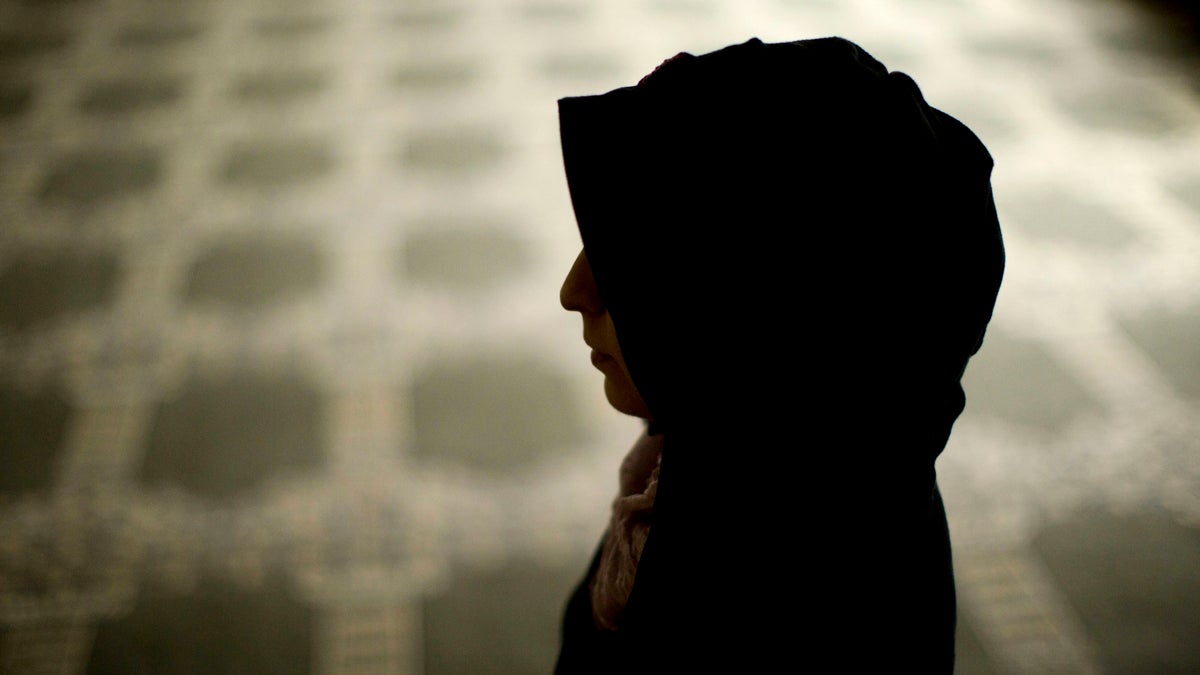Gallup polls Americans on Syria, refugees, and terrorism
Listen
A Syrian refugee, who agreed to be photographed on condition of anonymity because of fear of retaliation against family living in Syria, poses for a portrait on Wednesday, Nov. 18, 2015, at the Muslim Association of Lehigh Valley in Whitehall, Pa. Dozens of Syrian refugee families are being resettled in the Allentown, Pa., area in part because the city is already home to one of the nation's largest population of Syrians, who began settling here in the late 1800s. (Matt Rourke/AP Photo)
NewsWorks Tonight host Dave Heller sits down for his weekly conversation with Gallup’s Frank Newport to talk about trends in American opinion.
One of the controversies arising from the terrorist attacks in Paris has been U.S. reaction to the plan previously announced by the Obama administration to relocate 10,000 refugees from Syria to the U.S.
Prior to the attacks, the results from polls asking about refugees were mixed. But this of course is not the first time that Americans have been faced with the issue of dealing with refugees fleeing some form of oppression or political reprisal in countries around the world. In 1939 Gallup was asking the nation about their reaction to proposals to allow refugees from Nazi Europe to enter the U.S.
In the years since, Gallup has asked Americans about post-world War II refugees, refugees attempting to flee from Hungary after the 1956 putdown of protests there, refugees fleeing from Vietnam after the Communist takeover in the mid-1970s, and refugees from Albania in the late 1990s.
Meanwhile, Americans’ concerns about terrorism were on the rise prior to the Paris attacks. Still, in early November, only three percent said that terrorism was the number one problem facing the nation.
GOP candidates have been highly visible in their statements about U.S. policy towards ISIS. At this point, we see Republicans nationwide steadily increasing in their positive views of Marco Rubio and — interestingly — N.J. Gov. Chris Christie’s image is starting to improve steadily. He has a more positive image now than Donald Trump. The big loser is Jeb Bush, whose net favorable rating among Republicans matches its all-time low.
Click the audio player to listen to the interview.
WHYY is your source for fact-based, in-depth journalism and information. As a nonprofit organization, we rely on financial support from readers like you. Please give today.


